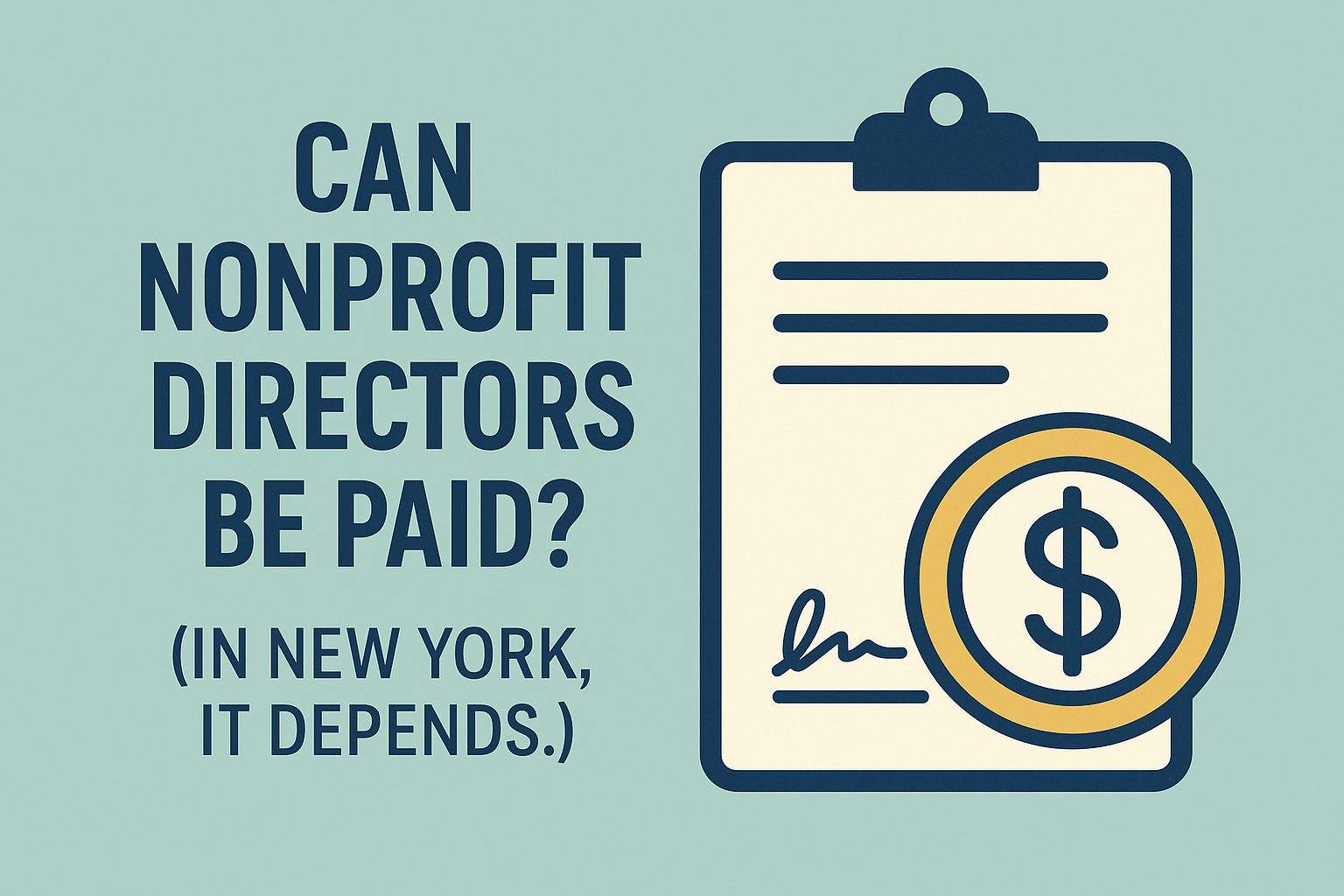Can Nonprofit Directors Be Paid?

If you’re involved with a New York nonprofit — especially a smaller one where the same people wear many hats — it’s natural to wonder: Can board members be compensated for their time and effort?
The answer is: Yes, under certain conditions. But the “how” matters just as much as the “whether.”
Paying Directors for Serving on the Board
New York’s Not-for-Profit Corporation Law (N-PCL) permits director compensation, but only if it’s permitted by your bylaws and handled with care:
- Check your bylaws first. Many nonprofits (often unknowingly) include default language that prohibits board compensation altogether. If that’s the case, you’d need to formally amend your bylaws before making any payments.
- Follow a proper approval process. Compensation decisions must be made by disinterested directors — that is, people who won’t personally benefit from the vote. That vote needs to be well-documented and comply with your conflict-of-interest policy.
- Payments must be reasonable. This isn’t just about fairness — it’s a legal requirement. Excessive or poorly justified payments can trigger scrutiny from the IRS or the NY Attorney General’s office.
In practice, paying directors just for board service is rare, especially for public charities. But in some cases — such as with highly active working boards — it may be justified.
Paying Board Members for Other Roles
What happens when a director also takes on non-board work — such as acting as an executive director, fundraising consultant, or accountant?
In those cases, compensation may be structured outside the board role, either:
- As an independent contractor, with a clear scope of services and a written agreement
- As a W-2 employee, if the role is regular and ongoing
That said, these arrangements bring their own complications:
- Are you tracking and separating board duties from paid work?
- Will the payment change the board member’s fiduciary status?
- Does the arrangement risk your 501(c)(3) status or trigger IRS reporting?
If the line between volunteer and compensated professional gets blurry, the nonprofit may need to file additional disclosures on Form 990 and possibly revise its policies.
So What’s the Right Move?
There’s no one-size-fits-all answer — and what’s permissible may not always be practical or advisable.
A few key questions to consider:
- Do your bylaws need to be amended?
- Is the payment structure the most tax-efficient and legally sound?
- Could this create public perception or donor trust issues?
If you’re thinking about compensating a board member — or you’re a director unsure how your nonprofit should approach it — it’s worth having a conversation before money changes hands.
Let’s talk through your specific situation, review your governance documents, and put the right protections in place.
Ready to get started? Let’s talk today.